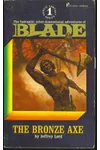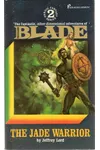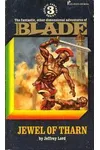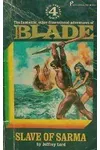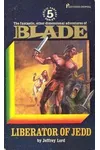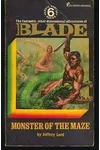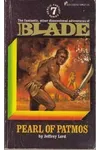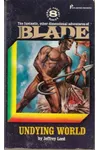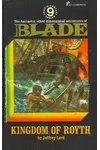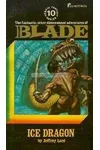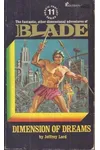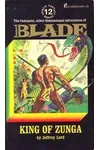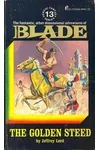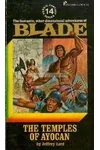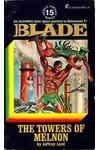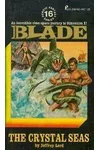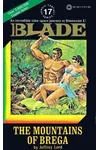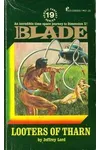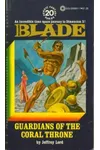Picture a shadowy collective of writers who whisked readers to wild, sword-clashing dimensions—meet Jeffrey Lord! This pseudonym, a cloak for 17 authors, powered the cult classic Richard Blade series, a 37-book saga blending James Bond’s suave grit with high-fantasy flair. From 1969 to 1984, these tales of a dimension-hopping MI6 agent captivated pulp fiction fans, carving a unique niche in American genre fiction.
The Richard Blade series, published by Pinnacle Books, thrilled readers with its bold mix of espionage, sci-fi, and sword-and-sorcery. Each novel hurled Richard Blade into a new alternate dimension, naked and armed only with his wits, to battle savage foes and woo alluring heroines. Let’s dive into the world of Jeffrey Lord and uncover the magic behind this thrilling legacy!
The Making of Jeffrey Lord
Jeffrey Lord isn’t one person but a house pseudonym, a collaborative banner for a roster of talented writers orchestrated by publisher Lyle Kenyon Engel. The series kicked off in 1969 with Manning Lee Stokes, who penned the first eight novels, setting the tone for Blade’s daring escapades. Authors like Roland J. Green, Ray Nelson, and others later joined, each adding their spice to the mix. While little is known about the personal lives of these writers under the pseudonym, their collective love for pulp fiction and adventure shone through, drawing from influences like Robert E. Howard’s Conan and Edgar Rice Burroughs’ John Carter.
The pseudonym’s origins are rooted in the 1960s pulp boom, when publishers sought fast-paced, escapist stories for eager readers. Engel’s vision was to merge the cool-headed heroism of a British spy with the raw, fantastical worlds of sword-and-sorcery, creating a hybrid that felt fresh and daring. The result? A series that hooked readers across continents, from the U.S. to France and Russia.
Jeffrey Lord’s Unforgettable Stories
The Richard Blade series is the heart of Jeffrey Lord’s legacy, with 37 novels spanning 1969 to 1984. Each book follows MI6 agent Richard Blade, teleported by a quirky scientist, Lord Leighton, into a bizarre alternate dimension. The stories are formulaic yet endlessly inventive, blending sci-fi premises with fantasy battles and steamy romance. Blade faces everything from cannibalistic tribes to simian warriors, often saving a damsel or a civilization before returning to England with a trinket or wisdom for Britain.
Standout titles include The Bronze Axe (1969), the series opener by Manning Lee Stokes, where Blade battles savage Albs and navigates a love triangle with Princess Taleen and Queen Beata. Jewel of Tharn (1969) dives into a decadent, tech-twisted world, showcasing the series’ knack for vivid settings. Roland J. Green’s Lords of the Crimson River (1981) pits Blade against river warlords, while Warriors of Latan (1984), the series finale, wraps Blade’s saga with a climactic battle. The writing style is punchy and cinematic, with lush descriptions and a cheeky, pulp swagger that keeps pages turning.
The series’ themes—survival, heroism, and cross-cultural clashes—resonate with pulp fans, though its explicit romantic scenes and occasional misogyny reflect the era’s sensibilities. Despite this, the books’ creativity and Blade’s relentless grit earned them a devoted following, with translations in French, Russian, and more.
Why Jeffrey Lord Matters
Jeffrey Lord’s impact lies in its bold fusion of genres, paving the way for modern cross-genre hits like urban fantasy and sci-fi thrillers. The Richard Blade series offered escapism during turbulent times, blending Cold War-era spy tropes with fantastical adventure. Its cult status endures, with fans still hunting rare paperbacks and audiobooks, like the Americana Publishing trilogy sets. In Russia, translators like Mikhail Akhmanov penned 16 sequels, a testament to Blade’s global appeal, though these remain untranslated into English.
The pseudonym’s collaborative nature also highlights the unsung heroes of pulp fiction—writers who crafted gripping tales under tight deadlines, shaping genre fiction’s evolution. Jeffrey Lord’s legacy is a reminder of storytelling’s power to transport and thrill, even under a shared pen name.
Snag The Bronze Axe and dive into Jeffrey Lord’s pulse-pounding world of spies and sorcery!
